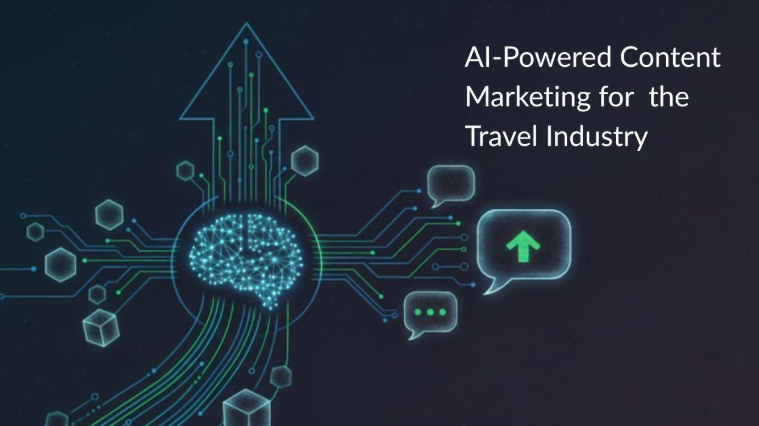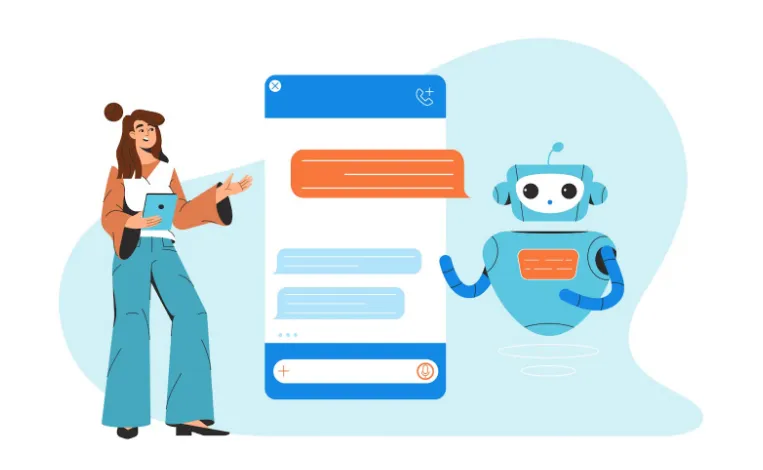The Future of AI-Powered Content Marketing in the Travel Industry

The modern traveler's journey is fragmented, moving from AI chats to social media before ever landing on your site. Delivering personalized content for every possible customer journey at scale seems impossible, and this is the core challenge for many travel brands today.
AI-powered content marketing could be the solution to this complex issue, delivering hyper-personalization, SEO-rich authority, all at a significant scale. But how can you leverage this technology without losing your brand's voice, all while resonating with travellers?
That’s where this detailed guide comes in. It shows the benefits and shortfalls of AI-powered content marketing for the travel industry. Keep reading to discover how AI is moving from a futuristic trend to a strategic imperative for growth today.
Why AI-Powered Content Marketing Solutions Are the Future for the Travel Industry
AI is fast becoming a way to meet the modern traveler's base-level expectation for 1:1 personalized experiences. The market is shifting from "traditional sightseeing” to “personalized, customized, and experiential travel products".
If you don’t adopt AI to create personalized content, then you may see yourself fall behind the competition. However, AI is a co-pilot, not the captain. These solutions still require expert human oversight to ensure your content aligns with SEO best practices and brand voice.
Fortunately, there are many agencies that can help, but Travel Tractions’ services help travel brands harness AI and SEO through guided human expertise.
Now that you know why AI-powered solutions are essential, it’s time to take a deeper dive into their benefits.
5 Ways AI-Powered Content Marketing Helps the Travel Industry
AI-driven platforms are not just a futuristic trend; they are present-day tools solving the travel industry's core challenges of personalization, authority, and scale.
1. Hyper-Personalization of Content
AI moves content from a static, one-to-many model to a dynamic, one-to-one experience. Instead of just segmenting audiences (e.g., "family travelers"), AI can act as a "digital concierge" to craft unique itineraries in real-time.
This is crucial as 71% of consumers now expect personalized interactions. AI-powered SEO tools can analyze search intent and semantic context, allowing brands to understand a traveler's specific need (e.g., "romantic weekend" vs. "family adventure") from the start.
This enables the creation of content that aligns perfectly with their search intent, providing predictive recommendations and personalized offers that are far more likely to convert.
2. Helps Showcase Brand Authority
In an AI-driven search world, generic content is invisible, and authority is everything. AI platforms help build this authority by identifying and creating deep content clusters around core topics.
This signals to search engines that your brand is an expert in its domain. Furthermore, this same high-quality, authoritative content is what AI answer engines (like Google’s Gemini and ChatGPT) are designed to cite. This creates a virtuous cycle: your expert content ranks well in traditional SEO, which in turn makes it a prime source for AI citations.
Being cited by AI reinforces your E-E-A-T (Experience, Expertise, Authoritativeness, Trust) and further solidifies your position as a trustworthy brand in the travel industry.
3. Expands Topical Reach
Manually creating content for every destination, niche, and traveler type is impossible. AI-powered content creation removes these manual delays, allowing brands to publish new offers and guides faster.
This enables you to expand your topical reach, covering long-tail keywords and niche subjects that would otherwise be too time-consuming to target. However, this is where the "Human-in-the-Loop" (HITL) model is critical.
Humans are essential for validating accuracy, ensuring factuality, and maintaining a consistent brand voice, factors that AI still struggles to perfect.
4. Align Content with Best SEO Practices
Modern SEO is about more than just keywords; it's about semantic context and topical authority. AI-powered SEO platforms excel at this, analyzing search intent and clustering topics to build a robust content strategy.
They help optimize the technical foundations, ensuring content is crawlable and correctly structured for both search engines and AI systems. This is crucial for the new "Generative Engine Optimization (GEO)", the practice of optimizing content to be cited by AI platforms such as ChatGPT and Google's Gemini.
AI tools can strategically target the "People Also Ask" and "Quick Answers" boxes. These are direct precursors to generative AI answers and help you feature prominently in these new search formats.
5. Stay Ahead of the Competition
AI in the travel industry is not a passing trend; it's a massive market shift, projected to grow from $3.37 billion in 2024 to $13.87 billion by 2030. This indicates exponential adoption, and brands that wait to integrate AI will be at a severe disadvantage.
Adopting AI-powered solutions allows you to build and fine-tune your processes, test what works for your audience, and train your team. The future is about augmenting your human team with AI, and those who start now will lead the next decade of travel marketing.
Shortfalls of AI-Powered Content Marketing
Adopting AI is not a simple "flip-the-switch" solution. It requires a C-suite-level strategic shift.
Key challenges and considerations include:
High Costs for Initial Setup: Implementation requires a "high economic budget" for the technology and significant resources for initial setup.
Data Quality and Integration: AI is "only as good as the data it processes". Many organizations struggle with poor data quality and inadequate infrastructure.
Privacy and Ethics: Handling sensitive traveler data (e.g., personal details, payment info, etc) raises immense data protection concerns and new cybersecurity risks. This is something that personalized AI-powered solutions need to keep in mind.
Brand Voice Consistency: AI struggles to capture empathy and grasp the nuances required to maintain a consistent brand voice, a critical component of travel marketing.
Fact Checking and Accuracy: AI models "can make mistakes". An inaccurate recommendation can destroy brand trust.
Expertise and E-E-A-T: Generic, machine-generated content will not stand out. True authority comes from firsthand insights from local guides, something only humans can provide.
These shortfalls highlight why you cannot just turn AI on autopilot. A "Human-in-the-Loop" (HITL) approach is essential. Humans must manage strategy, validate facts, and provide the expert insights that AI then scales.
Conclusion: The Future of AI Search for the Travel Industry
The future of travel marketing is not about AI replacing marketers; it's about marketers and AI tools working in unison for better results. AI is a co-pilot that handles scale and data analysis, freeing humans to focus on strategy, creativity, and empathy.
The brands that win will not be those who simply buy AI tools, but those who successfully blend AI's power with an irreplaceable human-in-the-loop.





